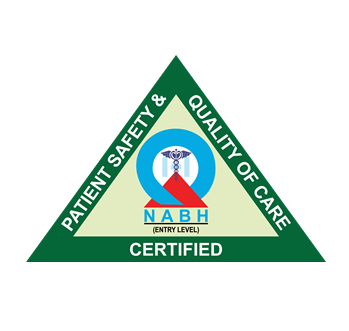
Tension, Migraine, or Cluster? Find the Right Treatment for Your Headache
Headaches are elements of life that nearly everyone encounters at various points in their journey. While some are mild, other headaches can be tremendously painful. Countless people endure head pain for years without identifying the exact trigger or the right course of action, and in the worst cases, without adequate treatment. Knowing the type of headache one has is the first and foremost step towards appropriate headache management.
Tension headaches, migraines, and cluster headaches are three distinct but common conditions. They each have symptoms that are specific to the condition, triggers, and treatment options. Getting the right diagnosis in this case changes everything.
To receive expert care and new options for treatment, Bangalore offers advanced solutions for addressing headaches and migraines and offers tailored care for each individual.
Headaches are the most common ailment. They can be the result of stress, improper posture, tiredness, or muscle aches in the neck and the area surrounding the shoulders.
Main Indicators:
- A dull, aching pain, or pressure on the forehead, side of the head, or back of the head
- A slight ache felt like a band of sorts encircling the head
- Mild to moderate pain
- A lack of nausea, vomiting, or aura
Additional Information:
Tension-type headaches can be episodic or chronic in nature, and usually respond to gentle exercise, rest, stress relief, or medications. Frequent tension-type headaches may indicate the need for some lifestyle changes or even physiotherapy.
Migraines: The All-Encompassing Pain
They can be complex in nature and quite different from “just a headache.” A migraine can be a multifaceted and genetic condition that affects a myriad of people regardless of age.
Main Indicators:
- Pain that is pulsing or throbbing, typically on one side of the forehead
- Heightened sensitivity to sounds, lights, and even smells
- Nausea and vomiting
- Sufferers may experience “auras” with pre-migraines, such as flashes and spots
- Duration can be from a couple of hours to three days
Additional Information:
The frequency and severity of migraines may necessitate the need for an individual to seek professional help. Individual migraine triggers can be as unique as the people who suffer from them and can include certain foods, stress, or lack of sleep.
A treatment plan may include both acute treatments (to stop attacks) and preventive therapies (to decrease the frequency of attacks). Some hospitals like East Point Hospital have customised care plans, such as Migraine Treatment in Bangalore, that consist of medication, nutritional guidance, lifestyle modifications, and also include Botox and nerve block therapy for those suffering chronically.
The Most Severe: Cluster Headaches
Though cluster headaches are less common, their intensity is unmatched. They show up in “clusters” usually at the same time every day and may last for a few weeks or months before going into remission.
Key Symptoms:
- Red, tearful eye and suddenly terrible pain (1 eye)
- Blocked/running nose on the same side
- Restlessness/agitation
- Lasts 15 minutes to a maximum of 3 hours
What to know:
Due to the level of pain, cluster headaches are nicknamed “suicide headaches.” These headaches often rouse people from sleep and can come multiple times a day during a high phase. These headaches can be treated with oxygen, triptans, and migraine preventive medication. Some people may need more drastic treatment, like nerve stimulation surgery, for treatment-resistant cases.
How Headaches Are Diagnosed
Getting a diagnosis is very important with headaches, especially when they become more frequent or change in frequency. The first steps are gathering a medical history and doing a physical exam. The physician might inquire about:
- The frequency of headaches
- The site of pain
- The duration of each headache
- Accompanying symptoms such as nausea, vision changes, or weakness
- Possible triggers like food, sleep, or stress
Additional tests may include:
- An MRI or CT scan to evaluate for any tumors, bleeding, or structural issues.
- Blood tests to evaluate for any signs of infection or inflammation.
- An eye exam, especially for patients who have symptoms of vision.
- Keeping a headache diary to evaluate symptoms, triggers and methods of relief.
With trained neurologists and modern facilities, patients in Bangalore are provided with rapid and accurate diagnoses.
When to See a Doctor
Occasional headaches are common and unlikely to be serious. However, the following circumstances indicate it is time to get a checkup:
- More than two headaches weekly
- Thunderclap headaches or migraines that are sudden, severe, or unusual
- Pain that increases over time, changes, or becomes more complex
- Headaches that occur with fever, confusion, stiff neck, or blurred vision
- Headaches following head trauma
- Numbness, weakness, or speech difficulties.
Don’t wait until migraines start interfering with your responsibilities. Taking action early can help avoid complications and reduce long-term discomfort.
What’s New in Migraine Treatments in Bangalore?
Bangalore has made tremendous progress in migraine treatments over the years due to emerging awareness, technological advancements, and innovation. Neurologists are now equipped to perform both traditional and modern migraine treatments, such as:
- Preventive medicines and Triptans
- Chronic migraine Botox injections
- Transcranial magnetic stimulation, or TMS
- Occipital nerve block, or nerve stimulation therapies
- Trigger and diet management plans
Headaches are a very common ailment,” as Dr. Mahendra put it. “At East Point Hospital, the focus is on understanding patients’ unique headache patterns and devising a multifaceted treatment plan that considers the physical and emotional repercussions of pain.
The Most Commonly Asked Questions
Q1. Is it true that headaches that occur continuously for a long period of time can be associated with movement disorders?
Yes. Some specific movement disorders that are associated with certain headaches include Parkinson’s disease and brain tumors. Considered aggressive from a symptom point of view, both require prompt intervention through imaging and scans.
Q2. What are some of the movement disorders that can be treated with advanced therapies?
Intermediate to advanced stages of Parkinson’s and some essential tremor variants are also characterised by debilitating, constant tremors, stiff, and involuntary movement. The use of advanced techniques such as Deep Brain Stimulation (DBS) and Stereotactic Radiosurgery is being utilised to ease these symptoms.
Q3. Do you think that it is possible for a migraine to result in limited movements?
Usually, when accompanied by an aura, migraines are known to induce bouts of transient movement limitations, including weakness and numbness. On infrequent occasions, a rare type known as Hemiplegic Migraine can mimic strokes; hence, it is essential for such atypical presentations to be evaluated right away by a neurologist.
Headaches that result in tension, migraines, or clusters are different from each other, and so are the ways in which each can be treated. Be it alleviating the stress of the individual, tracing a certain dietary pattern that would need to be removed, or attempting to be treated through nerve stimulation, precise scenarios require precise solutions.
When you or someone you know is dealing with persistent headaches that impact their daily life, it offers a caring medical solution. East Point Hospital now offers specialised consultations and modern migraine treatment in Bangalore, so patients can obtain personalised and life-changing relief. Headache specialists Bangalore combine modern technology with a human first approach.


